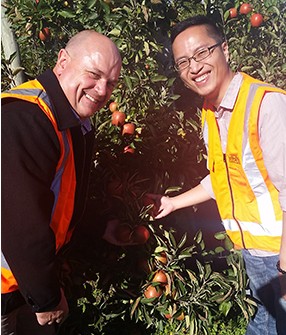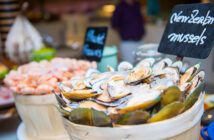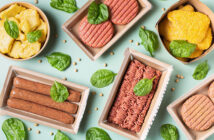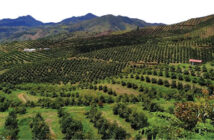
In taking its iconic Kiwi brand to Korea, Tasman Bay Food Group had to invest in some costly improvements to suit the market. But the reward is a better product and increased demand across the board.
In taking its iconic Kiwi brand to Korea, Tasman Bay Food Group had to invest in some costly improvements to suit the market. But the reward is a better product and increased demand across the board.
Based in Nelson and founded in 1984, Tasman Bay Food Group is a niche manufacturer of frozen juice bars, dairy products, baked fruit bars, fruit pies and biscotti. The company’s own brands – Juicies, Moosies Milk Freeze, Nature’s Harvest Organic, Zesti, Cool Sips, Hot Bites and Cookie Tree – are sold in school canteens, supermarkets and independent retailers throughout Australasia.
Tasman Bay also contract manufactures for private labels and makes branded products for the global food industry. These include high-energy long shelf-life fruit bars for military customers in Asia and Australia.
Product development is a continuous process that’s seen as an integral part of the business’s success, says Marina Hirst Tristram, Tasman Bay’s executive director of operations. The company implements a number of product and process innovations each year and is currently expanding and developing its fruit-processing facility on site.
Its flagship product, Juicies, was developed in 1989 and is sold predominantly through school canteens and retail grocery. Made from freshly pressed apple juice from the Tasman region, Juicies contain half the sugars of regular ice blocks and no added sugar, making them a healthier option and a firm favourite with Kiwi kids.
Following on from the Juicies’ local success, Tasman Bay began its foray into international markets, setting up a subsidiary and distribution in Australia in the mid-1990s, working with around 30 distributors focused on school canteens across Australia.
A contract, via an agent, to supply long-life bars for the Singaporean army’s ration packs, gave the company further insight into the level of quality and sophistication demanded by export markets.
“A very high level of compliance was required, so we focused on bringing our food safety up to BRC standards in preparation to export and supply overseas supermarkets.”
The pivotal moment, says Hirst Tristram, came in 2008 when a Korean customer ordered several containers of Juicies. During the export testing phase, Tasman Bay identified three important improvements the product required to satisfy international markets.
“The first two focused on the plastic packaging, which was tricky to open and made the product cold for kids to hold,” she says. “As a frozen product, Juicies were also hard to bite through. We needed to improve our product for it to be acceptable in the export market.”
What followed was a risky two-year, $1.5 million process of equipment upgrades and packaging modifications. A cardboard tube with an easy-peel lid replaced the plastic sachets. This not only made Juicies easier to hold, but also meant the packaging could be printed in bright colours. Tasman Bay also developed a unique new process of simultaneously whipping and freezing its natural juice to create a sorbet-like texture that was much easier to bite into.
“Developing the new-format product was a big undertaking and we had no guarantee it would be successful,” says Hirst Tristram. “But the investment has paid off, and now Juicies is an even better product.”
While the majority of the company’s business is still local, Tasman Bay recognises that its future growth lies in export markets. Asia currently offers the most promise and, having entered Taiwan and Singapore, the company is now also operating in Korea and the United Arab Emirates, and lining up distribution deals in Hong Kong and Japan.
Tasman Bay recently signed a substantial distribution arrangement with the 7-Eleven chain to put Juicies into more than 7,000 7-Eleven convenience stores throughout South Korea. While the deal pre-dates the signing of the Korea New Zealand Free Trade Agreement, this relaxing of trade barriers between the two countries means Tasman Bay can invest in other areas such as marketing.
“The Korea New Zealand Free Trade Agreement gives us the chance to develop deeper commercial relationships with South Korea. It makes it easier for us to do business by significantly reducing tariffs, strengthening partnerships and opening up pathways for new business opportunities.”
“Our Juicies are due to hit the shelves in April. 7-Eleven are quite excited about it and we’re cautiously optimistic. Going into export markets, there are big wins and big fails, but we can always take learnings from those.”
Hirst Tristram says a good in-market distribution partner and a close working relationship with 7-Eleven are vital, but Tasman Bay needs to be prepared back home too. Dealing with such big customers increases the company’s risk. A breakdown that might halt supply would be a disaster, so Tasman Bay has already invested in a new production line.
NZTE is the Government’s international business development agency. Find more international insights at www.nzte.govt.nz/news and twitter.com/NZTEnews.
[CAP] Tasman Bay Sales Director Martyn Barlow (left) with their Taiwan distributor visiting the apples that go into their Juicies.




























































































